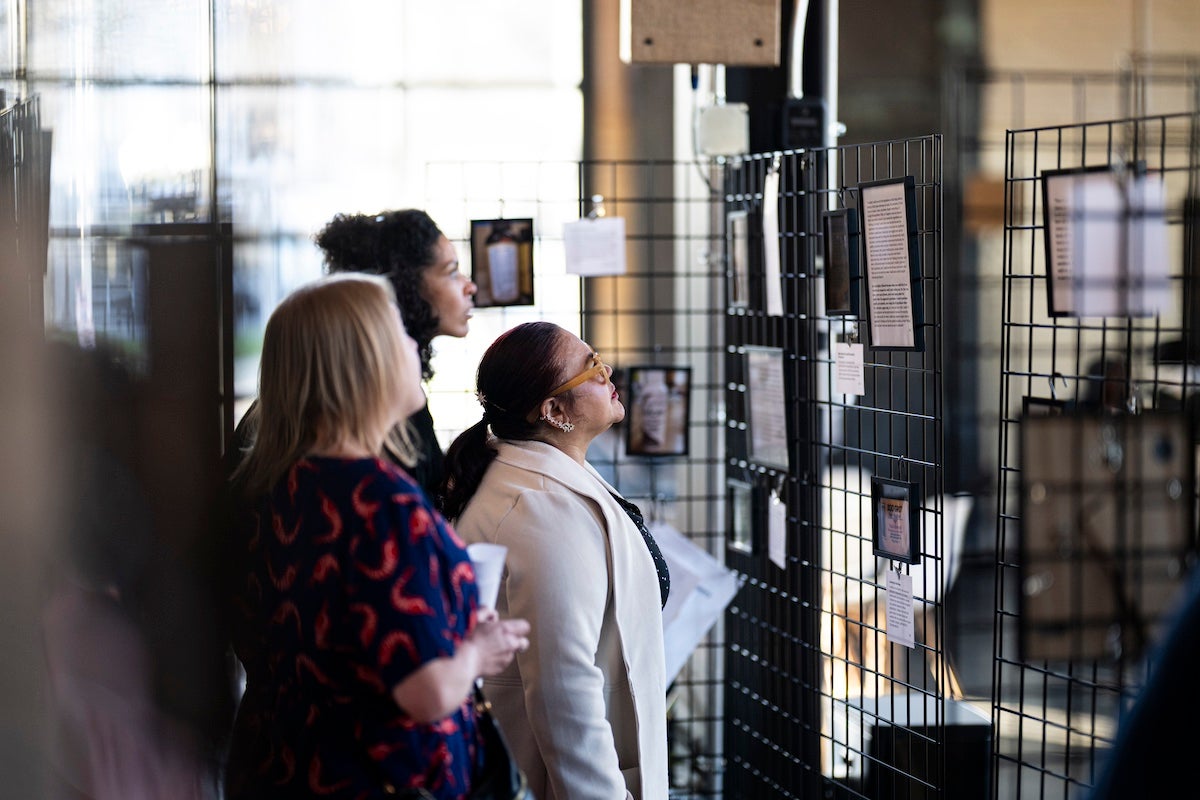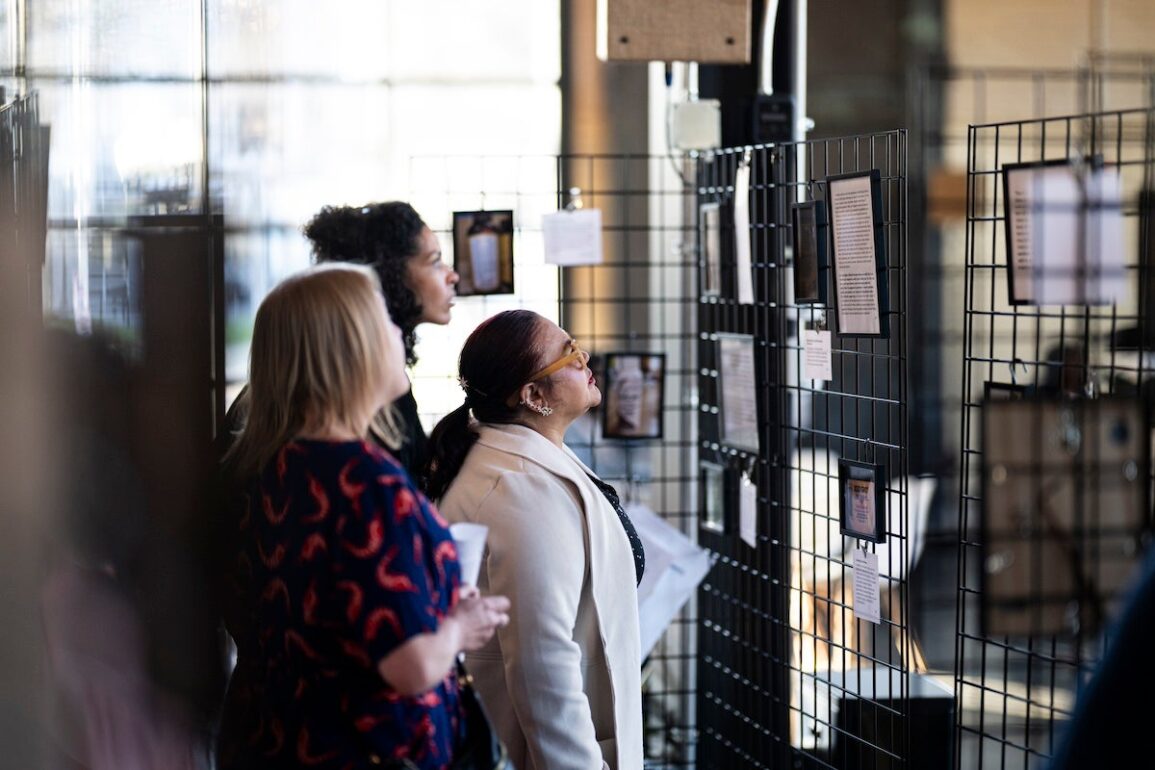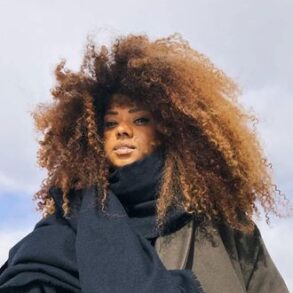
May 7, 2024 – A recent art show in the Boston neighborhood of Roslindale provided a platform for community members to explore the factors at play in access to safe hair products among Black women in Boston.
More than 70 people attended the unique event—a combination art show and academic study—which was held April 25 at the Substation, a community space. It was conceived by Marissa Chan, a PhD candidate in environmental health at Harvard T.H. Chan School of Public Health, as a component of her dissertation, the RESTYLE (Retail Environment and Hair Styling Exposure) Study. RESTYLE is aimed at uncovering the community and neighborhood-level drivers of hair product availability and use patterns in greater Boston and identifying potential community-based interventions to protect Black women’s health.
Research led by Chan has shown that hair products sold in Boston neighborhoods with higher percentages of people of color and lower income people tend to be more toxic than those sold in neighborhoods with more white and affluent people. Chan’s research is part of work being conducted in Harvard Chan School’s Environmental Reproductive Justice Lab, directed by Tamarra James-Todd, Mark and Catherine Winkler Associate Professor of Environmental Reproductive and Perinatal Epidemiology.
The art show featured the work of 21 community members who served as co-researchers on Chan’s project by taking photos and providing stories that highlighted their experience with and thoughts about accessing, buying, and using safer hair products in Boston. The photos and stories addressed issues such as product ingredients, prices, the role of businesses and suppliers of hair products, and societal expectations about what Black women’s hair should look like.
The show also featured quotes from members of community focus groups convened by Chan as part of her research. In addition, attendees had an opportunity to offer feedback on solutions to address the lack of access to safe hair products in their community.
Speakers at the event included Chan, James-Todd, and several community participants in the RESTYLE project.
“All of the co-researchers who spoke shared a lot of special comments and stories about their experiences,” said Chan. “But one in particular made a very touching comment. She said that, before this project, no one had really created space that centered her humanity—not as a consumer—but as a whole person and as a Black woman, and it shouldn’t have taken 20 years to have this happen for her.”
Photos: Ben Gebo
This post was originally published on this site be sure to check out more of their content.






